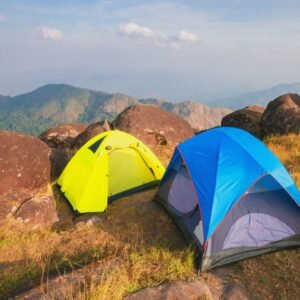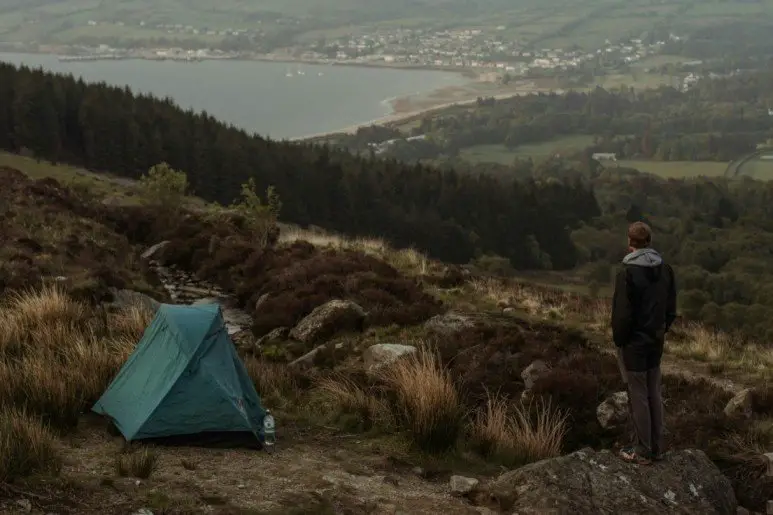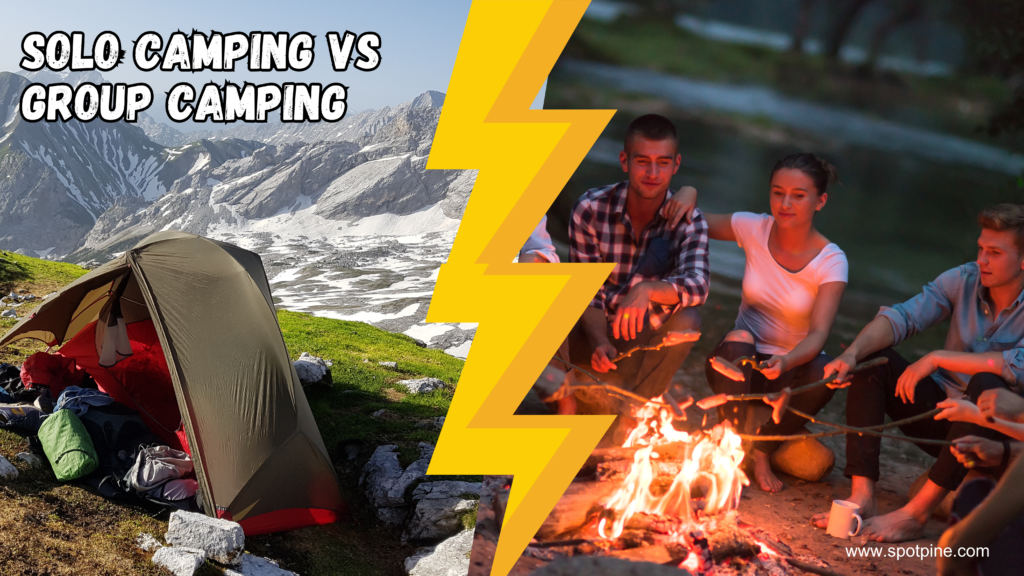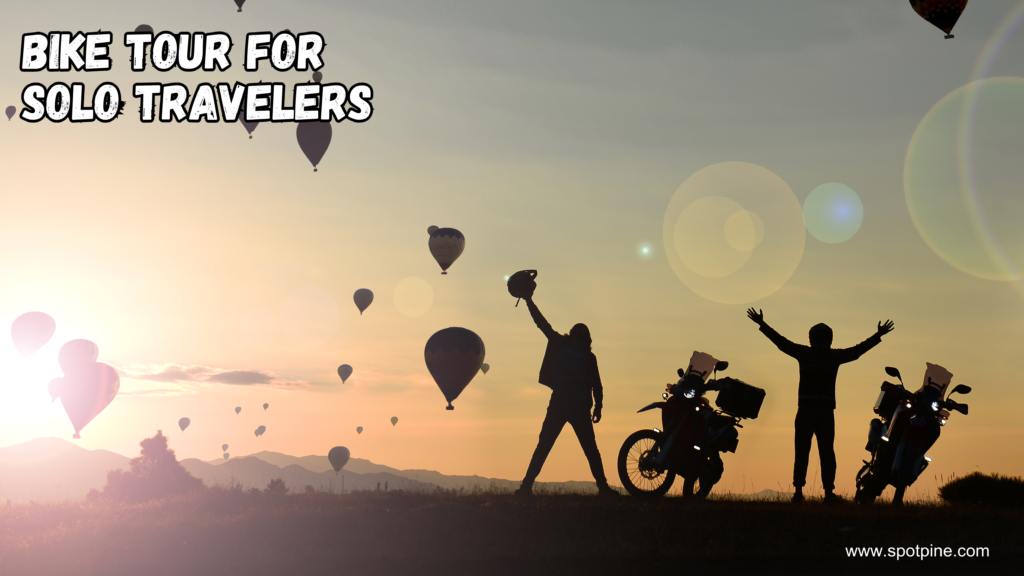In a bad camping situation, stay positive and adaptable to make the best of it. Consider adjusting plans and seeking alternative activities to salvage the experience.
Embarking on a camping adventure is an exciting and rewarding experience, allowing you to connect with nature and unwind from the hustle of daily life. However, not every camping trip unfolds as planned, presenting challenges that can dampen the spirit.
From inclement weather to uncooperative neighbors, unexpected difficulties can arise. Nevertheless, there are effective strategies for making the best of a bad camping situation. By embracing a flexible mindset and exploring alternative activities, you can salvage the experience and create lasting memories. This guide will provide practical tips to help you navigate through adverse camping scenarios and ensure an enjoyable outdoor adventure.

The Importance Of Adapting
The Importance of Adapting: When faced with a challenging camping situation, the ability to adapt becomes crucial. It’s not about simply enduring the circumstances but about finding innovative ways to thrive despite the setbacks.
Utilizing Resilience In Camping
Resilience in camping entails staying strong in the face of adversity. It’s about maintaining a positive mindset and not letting obstacles dampen the camping experience. By being resilient, campers can overcome difficulties with determination.
Turning Challenges Into Opportunities
Every camping challenge presents an opportunity for growth and learning. Whether it’s dealing with unexpected weather conditions or equipment failures, approaching these situations with a problem-solving mindset can lead to new discoveries and experiences.
Essential Camping Etiquette
When it comes to camping, adhering to essential camping etiquette is crucial for a harmonious and enjoyable outdoor experience. Whether you are a seasoned camper or a novice outdoor enthusiast, understanding and following camping etiquette ensures that you not only have a positive impact on the environment but also respect your fellow campers. Here are some crucial factors to consider under Essential Camping Etiquette:
Respecting Nature
Respecting nature is an essential aspect of camping etiquette. Leaving No Trace is the golden rule. Always pack out what you pack in, dispose of waste responsibly, and refrain from damaging the natural surroundings.
Considering Fellow Campers
Considering the well-being of your fellow campers plays a significant role in maintaining a positive camping atmosphere. This includes keeping the campsite clean, respecting quiet hours, and refraining from disrupting neighboring campsites. Additionally, being mindful of your campfire and lights at night ensures that everyone can enjoy the tranquility of nature.
Enhancing Your Camping Experience
Camping is a wonderful way to enjoy the great outdoors and reconnect with nature. However, sometimes things don’t go as planned, and you find yourself in a less-than-ideal camping situation. But don’t fret! With a few adjustments and a positive mindset, you can make the best of any bad camping situation. In this article, we’ll explore some tips and strategies for enhancing your camping experience, from choosing the right campsite to optimizing comfort and safety.
Choosing The Right Campsite
One of the first steps to enhancing your camping experience is choosing the right campsite. A well-selected campsite can make a world of difference in your overall enjoyment. Here are some factors to consider when selecting a campsite:
- Location: Look for a campsite that offers beautiful natural surroundings, such as mountains, lakes, or forests. Consider proximity to hiking trails or other outdoor activities you enjoy.
- Amenities: Check if the campsite provides amenities like clean restrooms, showers, potable water, and picnic tables. These can greatly enhance your comfort during your camping trip.
- Noise Level: Avoid campsites near busy roads or noisy areas. Look for sites that offer a tranquil and peaceful atmosphere.
Optimizing Comfort And Safety
Comfort and safety should be your top priorities when camping. By taking a few extra steps, you can ensure a more enjoyable and secure camping experience. Here are some tips to help you optimize comfort and safety:
- Sleeping Gear: Invest in good quality sleeping gear, including a comfortable sleeping bag, sleeping pad, and a tent that suits the weather conditions. These items will provide you with a cozy and restful night’s sleep.
- Campfire Safety: Follow proper campfire safety guidelines to prevent accidents and wildfires. Clear the area around the fire pit from flammable materials, never leave the fire unattended, and fully extinguish it before leaving the campsite.
- First Aid Kit: Pack a well-stocked first aid kit to handle minor injuries and illnesses. Include items like band-aids, antiseptic wipes, pain relievers, and any necessary medication.
- Food Storage: Keep your food secure from wildlife by storing it in sealed containers or bear-resistant canisters. This practice will help maintain cleanliness and prevent unwanted visitors.
- Weather Preparedness: Check the weather forecast before you head out and pack appropriate clothing layers to stay comfortable in changing temperatures. Bring rain gear and extra blankets if needed.
By prioritizing the right campsite and optimizing comfort and safety, you can enhance your camping experience, even in a less-than-ideal situation. Remember, the key is to remain adaptable and have a positive attitude. Embrace the challenges as part of the adventure, and you’ll create lasting memories no matter what.
Camping Safety Checklists For Beginners
Dealing With Worst-case Scenarios
When it comes to camping, making the best of a bad situation is crucial. Being prepared for worst-case scenarios is essential for a successful camping trip. Enhance your experience by choosing the right campsite, gearing up for comfort, and being ready for any challenges.
Preparing For Unforeseen Circumstances
In camping, it’s important to be prepared for any unexpected situation that may arise. Whether it’s a sudden thunderstorm, a broken tent pole, or a medical emergency, being prepared can make all the difference. Here are some essential steps to take in order to be ready for the worst:
- Pack a well-stocked first aid kit, including supplies for common injuries such as cuts, burns, and sprains.
- Come equipped with extra camping gear, such as spare tent stakes, rope, and a repair kit for any potential equipment failures.
- Research the local area and be aware of any potential hazards, such as wildlife or natural disasters, so you can take appropriate precautions.
- Inform someone of your camping plans and expected return date, so they can raise the alarm if you don’t return as scheduled.
Tackling Challenges Head-on
When faced with a worst-case scenario during a camping trip, it’s important to stay calm and tackle the challenges head-on. Here are a few tips to help you navigate through these difficult situations:
- Assess the situation and prioritize your safety and that of your fellow campers. Determine if immediate action is required, such as seeking shelter during a storm or performing basic first aid.
- Utilize your resources and problem-solving skills to come up with creative solutions. For example, if your tent gets damaged, you can try using a tarp and some rope to create temporary shelter.
- Don’t be afraid to ask for help. Reach out to fellow campers or campground staff who may have the knowledge or tools to assist you in resolving the issue.
- Stay positive and maintain a sense of humor. Sometimes, a good laugh can help alleviate tension and make the situation more manageable.
Remember, camping is an adventure, and being prepared for the worst-case scenarios can help turn a challenging situation into a memorable experience. By preparing for unforeseen circumstances and tackling challenges head-on, you can make the best of a bad camping situation.
Handling Difficult Interactions
Navigating challenging encounters in camping can be eased through proactive communication and problem-solving. Addressing issues promptly and seeking mutually beneficial solutions can salvage a bad situation and enhance overall camping experience. Embracing a positive attitude and maintaining open dialogue are key to resolving conflicts effectively during outdoor adventures.
When it comes to camping, sometimes we encounter difficult interactions with other campers. Whether it’s dealing with noisy neighbors or resolving sensitive campground issues, it’s important to handle these situations with tact and grace. In this section, we’ll discuss two key aspects of managing difficult interactions: Managing Camping Neighbors and Resolving Sensitive Campground Issues.
Managing Camping Neighbors
Having pleasant neighbors can make a camping trip enjoyable. However, sometimes we may find ourselves dealing with less-than-ideal camping neighbors. Here are a few tips to manage such situations:
- Introduce yourself: Start off on a friendly note by introducing yourself to your camping neighbors. This can help foster a positive relationship from the beginning.
- Communicate politely: If you have any concerns or issues with your neighbors, approach them politely and discuss the matter calmly. Clear communication is key to resolving conflicts.
- Respect boundaries: Be mindful of your neighbors’ space and privacy. Avoid playing loud music or engaging in activities that may disrupt their camping experience.
- Involve campground staff if needed: If the situation escalates and you’re unable to resolve the issues on your own, don’t hesitate to involve the campground staff. They are there to assist and ensure a peaceful camping environment for everyone.
Resolving Sensitive Campground Issues
In some cases, we may encounter sensitive campground issues that require careful resolution. Here are some steps to navigate these situations:
- Stay calm and composed: It’s essential to remain calm when faced with sensitive issues. Reacting impulsively can escalate the problem further.
- Listen actively: Hear out the other party’s concerns and grievances. Validating their feelings can help foster understanding and find common ground for resolution.
- Offer solutions: Brainstorm possible solutions to the issue at hand. Collaborating and finding a compromise can lead to a satisfactory resolution for all parties involved.
- Follow campground guidelines: Adhere to the campground’s rules and regulations. By doing so, you can ensure a harmonious camping experience and prevent future issues.
Remember, handling difficult interactions during camping requires patience, understanding, and effective communication. By approaching these situations with a positive attitude, we can make the best of any bad camping experience.
Minimizing Bad Camping Experiences
Camping can be a wonderful way to escape the hustle and bustle of everyday life, but unfortunately, things don’t always go as planned. Whether it’s unruly weather, bothersome bugs, or unanticipated equipment malfunctions, bad camping experiences can put a damper on your outdoor adventure. However, with some strategic planning and a positive mindset, you can minimize these negative experiences and make the most of your time in the great outdoors.
Learning From Past Mistakes
Reflecting on previous camping trips can provide valuable insights into what went wrong and how to avoid similar pitfalls in the future. Documenting the challenges encountered and the strategies used to overcome them can serve as a guide for making more informed decisions on upcoming excursions.
Preventing And Overcoming Challenges
Anticipating potential hurdles and proactively addressing them is key to minimizing bad camping experiences. From selecting a suitable campsite and equipping yourself with the right gear to preparing for varying weather conditions, taking preventative measures can significantly reduce the likelihood of encountering major setbacks.
Creating A Pleasant Camping Environment
Camping can sometimes throw unexpected challenges your way, but with the right approach, you can turn a bad camping situation into a pleasant experience. One key aspect is Creating a Pleasant Camping Environment. By focusing on Maintaining Cleanliness in Campsites and Enhancing Outdoor Experiences, you can make the most of your time in nature.
Maintaining Cleanliness In Campsites
- Properly dispose of trash and waste to keep your campsite clean.
- Regularly clean cooking and eating utensils to prevent attracting pests.
- Respect nature by following the “Leave No Trace” principle.
Enhancing Outdoor Experiences
- Set up a cozy outdoor seating area with a camp chair or hammock.
- Engage in outdoor activities like hiking, fishing, or stargazing.
- Create a welcoming ambiance with soft lighting and campfire stories.
In challenging camping situations, remember that maintaining cleanliness and enhancing outdoor experiences can greatly improve your overall enjoyment of the trip. Embrace the beauty of nature and make the best of every moment.
Learning And Growing From Setbacks
In any camping adventure, setbacks can often arise unexpectedly. However, it is through these challenges that we find opportunities for growth and learning. Embracing the difficulties and setbacks that come our way can lead to personal development and resilience.
Accepting Mistakes As Growth Opportunities
- Recognize mistakes as valuable learning experiences.
- Reflect on what went wrong to avoid repeating the same errors.
- Use setbacks to strengthen problem-solving skills.
Improving Future Camping Ventures
- Apply lessons learned from past camping mishaps.
- Upgrade camping gear for better preparedness.
- Plan more thoroughly to anticipate potential challenges.
When faced with a challenging camping situation, it’s important to remember the key to making the best of it lies in preparation and maintaining a positive outlook. From choosing the right campsite to managing unexpected scenarios, taking proactive steps can turn a potentially negative experience into an enjoyable and memorable adventure.
Embracing the unpredictability of nature and adhering to camping etiquette further enhances the overall experience, making the most of every moment spent in the great outdoors.
FAQs:
What Is The Number One Rule Of Camping?
The number one rule of camping is to “Leave No Trace” – Keep your campsite clean, respect quiet hours, and be mindful of nature.
What Are The 10 Disadvantage Of Camping?
Camping can have these 10 disadvantages: bugs, bad weather, expensive gear, lack of internet, shared bathrooms, noise at night, sunburn, limited food, and dirt.
What Camping Etiquette Is The Top Most To Consider?
The top camping etiquette to consider: 1. Leave No Trace 2. Keep Campsite Clean 3. Respect Quiet Hours 4. Don’t Cut Through Campsites 5. Be Mindful of Your Campfire.
How Can I Make My Camping Trip Better?
To make your camping trip better, follow these tips: 1. Choose a good campsite 2. Gear up for comfortable sleeping 3. Elevate your camp kitchen 4. Improve your meals 5. Be prepared for weather and bugs



